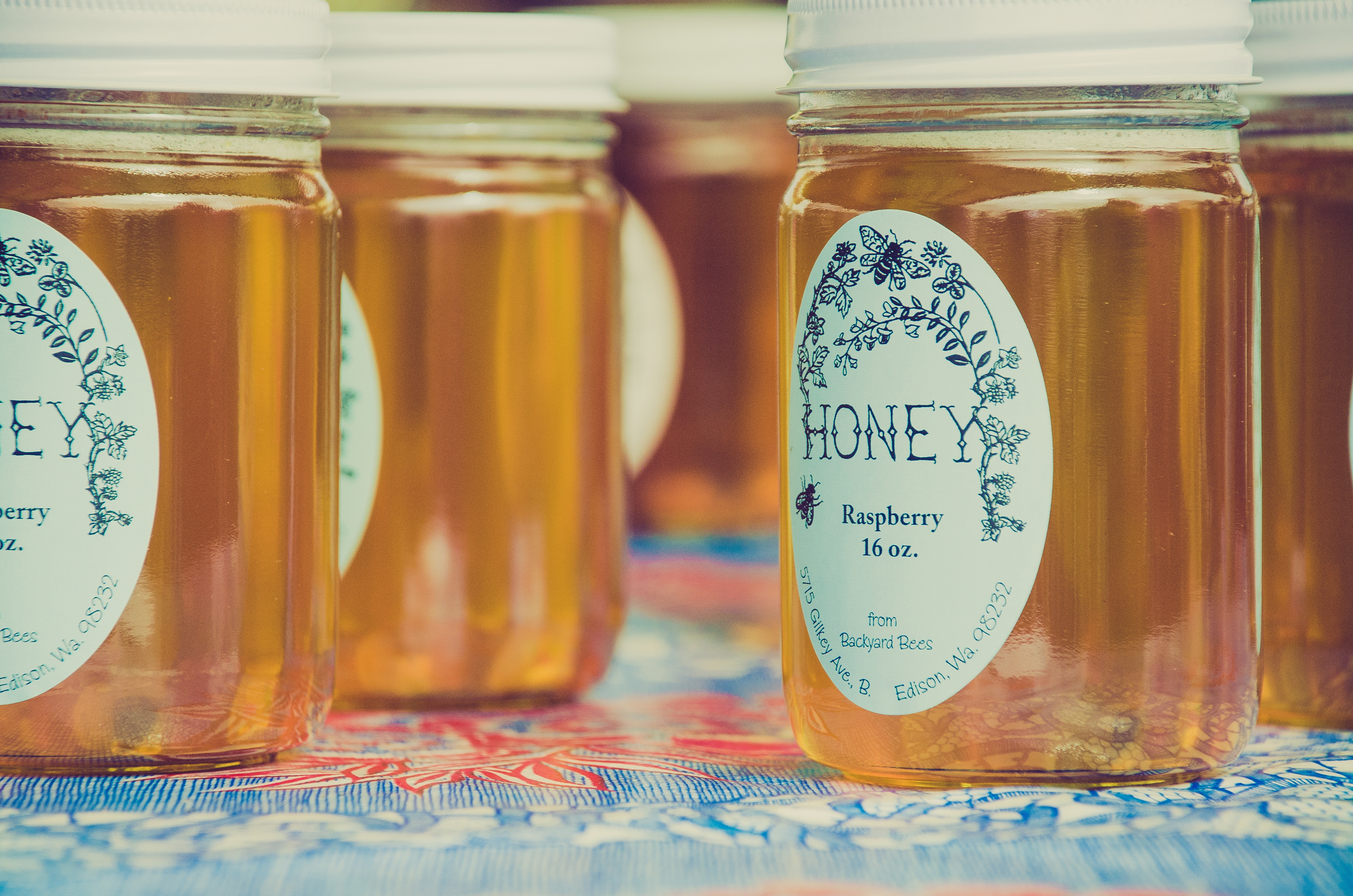With Spring nearly upon us, it is important to talk seasonal allergies. While Spring itself makes for a most glorious sight…sunny days, wildflower season, warming weather…it can be misery for those who suffer from seasonal allergies and associated symptoms.
Allergic diseases, of any description, are among the fastest growing of all chronic conditions in Australia with around 20% of our population having an allergic disease of some description. So much so, that hospital conditions for anaphylaxis have increased 4-fold in the last two decades.
Lets go back to basics for a moment and uncover what an ‘allergy’ actually is. An allergy is an abnormal or inappropriate response by the body’s immune system to a substance that is considered not normally harmful. The immune system does a great job at identifying foreign invaders and releasing white blood cells to rid of them. In people with an allergy, the immune system, wrongly identifies an non-harmful substance, causing an overreaction by the white blood cells and therefore, symptoms arise. A substance that provokes this allergic response is called an allergen with common seasonal examples being grass, dust mites, mould, flowers, pollen, specific metals such as nickel, blossom, some cosmetics, animal hair etc.
Many people think they have allergies, especially when it comes to food, when in fact, they don’t. There is a clear difference between allergy and intolerance with the latter involving the inability to digest and process a certain food correctly, most commonly due to a lack of enzymes. You can grow out of or try and reduce an intolerance, but once you have an allergy, it is there to stay.
When talking seasonal allergies, for those that suffer, I 100% feel you. I used to suffer terribly too. These days, my symptoms wax and wane. Whether its pollen, grass, dust mites, weeds, flowers, blossom, mould, dogs, cats…you name it, seasonal allergies are far from pleasant and for most people they are no more than a frustrating facet of life. For some, however, it doesn’t stop at a runny nose, post nasal drip, congested head and itchy eyes, it moves on to trigger asthma and other more serious problems, further compromising the health of a susceptible human.
To be a little scientific, allergic rhinitis, is the classy medical name given to ‘hay fever’ and seasonal allergies that progress through spring and into summer and autumn.
Hay fever can typically strike at any age and with any one, it has no preference. Generally speaking however, if you suffer badly, you will tend to notice symptoms at a younger age.
Symptoms of seasonal allergies include:
- post nasal drip
- congestion
- runny nose
- runny and itchy eyes
- skin rashes
- sneezing
- ear infections
- excess mucous production
- decreased ability to focus and concentrate
- lethargy and fatigue
- low blood pressure
- chest and breathing problems
- irritability and mood swings
- sleep disorders
Did you know that around 70% of the immune system is located in the gut? Do you notice that your symptoms are worse when you’re stressed?
Needless to say that the gut-brain axis is a character of incredible significance in the hay fever tale. The brain is the chief modulator of the gastrointestinal system, so much so that when one is stressed, they get butterflies or develop an ‘upset’ stomach. To go a step further; a stressed gut, means a stressed immune system. With such a large proportion of immunity reliant on good gut function, gut health is the key to reducing both prevalence and symptoms of illness when it comes to seasonal allergies.
A recent American study has shown that adults who suffer from seasonal and/or nut allergies were found to have a gut microbiota comprised of a lower diversity of good bacteria (namely Clostridiales) and a higher amount of less desirable bacteria (such as Bacteroidales). Targeting this dysbiosis may be effective in both improving treatment of allergy as well as prevention.
The pathogenesis of both asthma and seasonal allergies are affected by the function and composition of the microbe communities that colonise both the gastrointestinal tract and the respiratory tract. These gut communities are further influenced by an array of environmental factors such as diet, antimicrobial administration and early-life microbial exposure.
Hence, the focus is to heal the gut; optimising the GI environment and reducing the risk and severity of allergic response.
HEALING THE GUT THROUGH DIET
- Increase your fruit and vegetable intake to ensure the recommended 2 fruit and at least 5 serves of vegetables daily. These are rich in antioxidants and polyphenols which have been shown to have beneficial effects on allergic rhinitis and asthma in sufferers. Dietary polyphenols and their metabolites have been shown to contribute to the maintenance of good gut heath by modulating gut microbial balance by stimulating the growth of beneficial bacteria (such as Lactobacillus spp. and Bifidobacterium spp.) and inhibiting the the pathogenic bacteria (such as C-reactive protein, an inflammatory blood marker). They also have anti-inflammatory, anti-carcinogenic, anti-allergenic, antioxidant and anti-microbial properties and can reduce the risk of several chronic diseases. Lactobacillus spp. and Bifidobacterium spp. act to enhance gut-barrier function, improve immunity, prevent against allergic responses, modulate lipid metabolism and contribute to the activation of provitamins.
- Ensure the adequate intake of fluids to reduce inflammation and thin mucous e.g. water, fresh homemade smoothies/juices, soups/broths, herbal teas.
- Reduce dairy and any other mucous-forming foods.
- Eat Omega 3 fatty acid rich foods e.g. oily fish (sardines, salmon, trout, herring, mackerel), chia seeds, walnuts, flaxseeds, bone broth, eggs.
- Avoid Omega 6 fatty acids rich foods e.g. vegetable-based oils, canola oil, margarine, shortening, sunflower oil, soybean oil.
- Prioritise wholefoods. Avoid foods high in refined sugars and refined carbohydrates, polyunsaturated oils & artificial sweeteners and flavours.
- Be wary of your alcohol and caffeine intake. These can increase our cortisol levels when consumed in excessive amounts and like we discussed above, a stressed body = a stressed gut = compromised immunity.
- Consume high fibrous foods. Females need 25g/day and males require 30g/day to meet their needs for dietary fibre. Proper fibre supplementation has been shown to effectively reduce the allergic inflammatory response seen in asthmatics. High fibrous foods benefit the good bacteria in the gut and assist the immune system in resisting allergic responses. Carbohydrate fermentation produces short-chain fatty acids (SCFA), the chief energy source for gut microbiota. These SCFA pay a role in internal energy balance, supplying much needed energy to the brain, heart, intestinal mucosa and muscles. One study showed that adequate dietary fibre consumption increases the concentration of circulating short-chain fatty acids, which directly affect the development of immune-cell precursors in bone marrow, which in turn protect against allergic inflammation in the lung.
- Eat prebiotic foods e.g. greenish bananas, onion, asparagus, garlic, oats, tomato.
- Eat probiotic foods e.g. tempeh, kefir, kombucha, sauerkraut, live cultured yoghurt.
- Honey. Honey has long been touted for its immune benefits. One study has shown that high doses of ingested honey (1g/kg body weight per day) for one month is inversely correlated to a significant improvement in allergy symptoms. Symptomatic improvement continued for one month post cessation of treatment.
- Herbal teas. Rooibos is a great option as it is rich in bioflavonoids such as quercetin and rutin, two compounds that block histamine, a chemical produced by the body is response to allergens. Ginger is a natural antihistamine, hence ginger tea is a good option for allergy control. It also exerts anti-inflammatory properties which can reduce the holistic effect of seasonal allergies on the body. Nettle tea is well known to help with allergy-related symptoms. Peppermint tea acts as a decongestant and also exerts anti-inflammatory effects as well as mild anti-bacterial effects. Chamomile also acts as a natural anti-histamine and can help boost immunity and reduce the severity of allergic symptoms in some.

VITAMINS & MINERALS
- Vitamin D. Ever noticed that your allergies get worse in the cooler months? This provides an important theory as to the importance of vitamin D in the pathogenesis of allergic conditions due to the idea that there is increased vitamin D deficiency during this time. Vitamin D is a known immune modulator and it has been shown that those who suffer from allergic rhinitis and other allergic conditions, have typically lower serum levels of Vitamin D.
- Vitamin C. Vitamin C acts to prevent the secretion of histamine by the white blood cells. One double-blind, crossover study has shown that 2g vitamin C on two consecutive days showed bronchial effectiveness on 16 patients with allergic rhinitis, compared to placebo.
- Vitamin E. Vitamin E is an important fat soluble vitamin and antioxidant that acts to reduce immune allergic response through the modulation of mast cell response, reducing the production of pro-inflammatory mediators and therefore the pathogenesis of allergic rhinitis. A double-blind placebo-controlled, randomised study has shown that 800mg/d of Vitamin E in addition to regular anti-allergenic treatment saw a reduction in allergic nasal and eye symptoms as well as reduction in the need for medication to control symptoms, compared to placebo.
- Magnesium. Magnesium has been shown to reduce symptoms of childhood allergy and asthma.
- Quercetin. Quercetin is a plant-derived polyphenol know to give fruit and vegetables their pigments. It is found in foods such as apples, cherries, berries, citrus fruits, cruciferous vegetables and dark leafy greens. Quercetin is known for its potent anti-inflammatory and antioxidant properties and is known to further assist in the reduction of allergic symptoms. One study has shown that oral administration of 25g/kg quercetin for 5 and 7 days significantly inhibited sneezing and nasal rubbing movements associated with seasonal allergies.
- Zinc. Zinc has long been touted for its immune-boosting effects. A zinc deficiency has been shown to result in decreased numbers of T cells as well as natural killer cells, reducing the body’s capability to fight infection. Zinc exhibits potent anti-viral properties and has been shown to suppress respiratory inflammation from human rhinovirus and other associated irritants. It has also been shown to reduce the severity and duration of the common cold, a viral illness that shares similar symptoms to allergic rhinitis.

- Ensure adequate rest and good quality sleep.
- Reduce stress. Remember that gut-brain axis that we talked about earlier!
- Get some fresh air regularly. If highly susceptible, reduce the amount of time spent outside.
- Wash hair and clothes after being outside if you’re highly sensitive to seasonal pollens etc.
- Experiment with essential oils. Lemon, lavender, peppermint are known to reduce allergic rhinitis.
- Incorporate a saline wash or use a neti pot. Ayurvedic practitioners are known to use a neti pot to gently irrigate the nasal passages and remove any potential irritants.
- Acupuncture has been shown in several cases to reduce allergic symptoms and improve quality of life in those who are chronic sufferers. Acupuncture plays a particularly important role in reducing nasal and conjunctival signs and symptoms as well as cutaneous symptoms such as pruritus (itching) in those with atopic dermatitis.
- A visit to the chiropractor is useful in relieving stress within the nervous system, optimising the immune system. A misaligned spine puts pressure on the specific nerves, creating a stressed nervous system, increases the body’s susceptibility to illness. Hence, chiropractic work helps treat the cause as opposed to just the symptoms.

